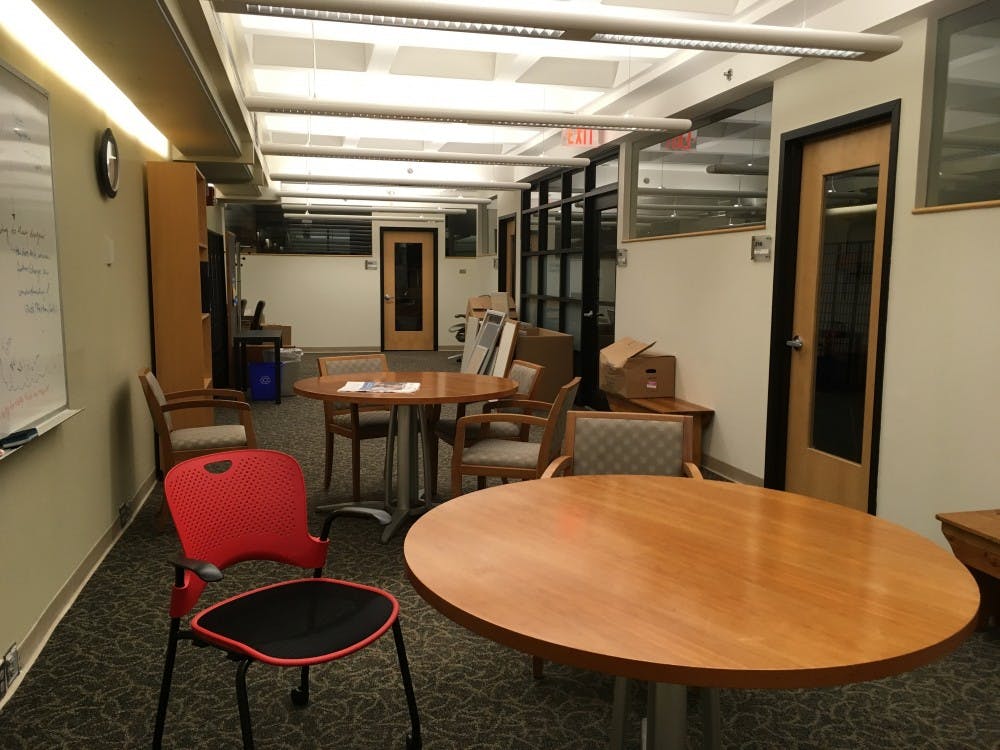As a first-year student, one of the trends at Princeton you quickly pick up on is the widespread distaste for writing seminars, an integral part of one’s academic journey here. While there are a handful of students who have enjoyed their writing seminars, there are undoubtedly a significant number of people who have not had such positive experiences.
Common complaints I’ve heard are that some students did not feel very compatible with their professor’s teaching style or that they did not find the course’s subject matter as engaging as they anticipated. For any other course, these challenges would warrant a student to drop or switch out of their current class to enroll in one that may be better suited for them; however, students are unable to do this for their writing seminar.
Currently, the Writing Program states that “under ordinary circumstances, students may not drop the writing seminar at any time during the term,” and only under “unusual” circumstances should they “speak with their residential college Dean or Director of Studies, as well as the Director of the Writing Program” for a possible exception.
As a result of this strict policy, such issues are never resolved but rather endured. This inability to switch writing seminars just allows these challenges — and thus the large negative outlook on writing seminars — to fester further.
If the University wants more students to enjoy the writing seminar requirement, they should implement some sort of add/drop policy, or at least be more flexible in the writing seminar enrollment process and policies overall. Doing so would increase the likelihood that students find a seminar they truly resonate with, therefore contributing to a more positive outlook about writing seminars. Most importantly, it would allow students to get the most out of their writing seminar, empowering them to obtain writing skills that will be significant to their academic careers.
I corresponded with Dr. Amanda Irwin Wilkins, Director of the Princeton Writing Program, over email to further understand the reasoning behind the current policy. Wilkins explained that “there are several reasons” why there is no add/drop period currently, “including the swift pace of the seminar curriculum.” With drafts of the first essay due within the first two weeks of the semester, Wilkins noted that “students need to be settled in their courses to hit the ground running.”
Yet, students who are desperately unhappy may not need the entire two-week shopping period to decide whether or not they’d like to remain in their writing seminar. With each writing seminar meeting two times a week for an hour and twenty minutes, it would be possible for a student to decide they’d like to drop their writing seminar within their first or second session, giving them time to catch up with their peers in their new class.
To make this process quicker, writing seminars could also encourage students to look over course readings before their first session, giving them a glimpse into what sort of readings they’ll expect for the rest of the semester. This could be another factor that would allow them to immediately decide if they are satisfied with their class.

Another step to address the time-sensitivity issue would be to give students a maximum number of times they can add or drop a seminar, or create a shopping period shorter than the shopping period time frame for other classes.
Wilkins also touched upon “the importance of seminar community,” explaining that draft workshops and peer feedback “work better when there is a steady cohort in the class.”
I agree that “community” is important for class productivity. But if students are unhappy in their writing seminars, they likely will not be in the best shape to productively contribute during draft workshops and peer feedback sessions.
Wilkins further highlighted the fact that “students do have the opportunity to rank their top eight choices from the list of Writing Seminar offerings,” and typically 97 percent of students are placed in one of their top three.

While this may be true, it’s important to note that not all courses are exactly as they present on paper. Thus, students are still essentially enrolling in seminars with minimal information about what the course will be like. Additionally, with the lack of course evaluations, students are left with the information they can grasp from other students who have taken writing seminars, which is often not enough to make a proper decision about what seminars they would like to enroll in.
Without any real evaluations, students utilize a number of measures to scope out writing seminars. Josephine Klein ’25, who is on the varsity squash team, told me she asked older teammates “if they had any suggestions of good writing seminars or writing seminars to stay away from.”
“I remember trying to look up writing seminars on the class review site but was disappointed when it seemed as though past students were unable to leave anonymous feedback on their writing seminar,” Klein added. “Hearing anonymous student perspectives would have been nice when signing up for my writing seminar, and I do wish that information was available.”
Wilkins also highlighted how “the Writing Seminars must accommodate every first-year student, and collectively they run near 99 percent capacity each semester.” Thus, the Writing Program uses “the razor-thin margin of flexibility that is left to address serious unforeseen scheduling conflicts for students who have exhausted other options.”
Indeed, the rigid capacity is a substantial factor that would impact whether or not an add/drop policy could be properly utilized by students. If the limited open space in writing seminar courses are prioritized for students who have outstanding scheduling conflicts, as Wilkins mentions, then offering more writing seminar courses overall could allow students who are deeply unhappy with their writing seminar to switch into one that is still open. Although this may be a sizable and time-consuming task — as it would require a process of finding staff, generating productive curriculum specific to a course’s subject matter, and so on — I think it is necessary for the long run if Princeton wants students to foster a meaningful connection with writing.
All in all, the prominent negativity surrounding writing seminars is a problem — one that considerably impacts first-year students and a student’s relationship with writing. While there are many things to consider, creating an add/drop policy or making writing seminars more flexible should not be impossible. If students are at least allowed to find a seminar they are truly engaged in rather than enduring challenges that will hinder their performance and learning, perhaps then there will be a more beneficial and positive relationship to writing seminars on campus.
Gisele Bisch is a first-year from the North Shore of Oʻahu (Hawai‘i) who plans to concentrate in anthropology. She can be reached at gb8528@princeton.edu.








